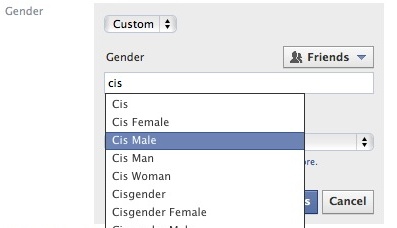Changing definition of “women” creates challenges for women’s colleges
Women's colleges face tough choices about whether to accept and retain transgendered students.
This article is the second in a three-part series on legal issues facing women’s colleges. You can read Part One here.
A 2011 study conducted by Dr. Gary Gates at the University of California, Los Angeles found that there are approximately 700,000 people living in the United States who identify as “transgender.” Transgender individuals experience a condition called “gender dysphoria,” defined as “a marked difference between the individual’s expressed/experienced gender and the gender others would assign him or her” that persists for at least six months. Transgenderism has slowly become more accepted in our society, as recently evidenced by Facebook’s decision to offer more than fifty gender options to its users. This has created a dilemma for women’s colleges which must now determine what it means to be a “woman” for purposes of admission.
In order to be admitted to a women’s college, generally a prospective student is required to provide documentation proving her gender and the gender designation on all of the applicant’s documents must match. This can be a tremendous burden for young transgender applicants. For example, the majority of states require that an individual undergo sex reassignment surgery, an expensive, painful, and time consuming process, before a new birth certificate can be issued. Transgendered Tennesseans are completely barred from getting a new birth certificate.
The problems transgender applicants face in light of this requirement were highlighted by the case of Calliope Wong, a Connecticut high school student who was denied admission to Smith College in 2013. Wong was born male, but transitioned to living as a woman two years before submitting her application to Smith. Twice the application was returned to her unread because her gender designation did not match up on all of her documents— her high school transcripts and other admission materials identified her as female, but her FAFSA documents read male. The school’s refusal to even review Wong’s application has garnered national attention and led to protests demanding that Smith change its admissions policy.
On the other side of the issue are cases like that of Alex Poon, a recent graduate of Wellesley College who was born female but identifies as a man. Poon knew that he was a man long before submitting his application to Wellesley, but took advantage of a “biological loophole” in order to attend the college of which his mother is an alumna. He believed that his gender identity would put him at risk at a traditional coed school and felt that he would be safer at a women’s college. Strangely women’s colleges have been much more accepting of transmen than they have been of transwomen. Students who transition to living as men after they have been admitted are allowed to stay and schools have made accommodations for them, including making bathrooms and housing available.
Transgendered students are not the only nontraditional students that women’s colleges must find ways to accommodate. Other gender identities listed in Facebook’s new options include “agender” (having or expressing no gender identity), “bigender” (experiencing two gender identities, either simultaneously or at different times), “pangender” (experiencing two or more gender identities at different times or in different situations), and many others. Women’s colleges must find a way to change their definition of “women” in order to keep up with society’s changing attitudes and to ensure the fulfillment of their educational mission.






